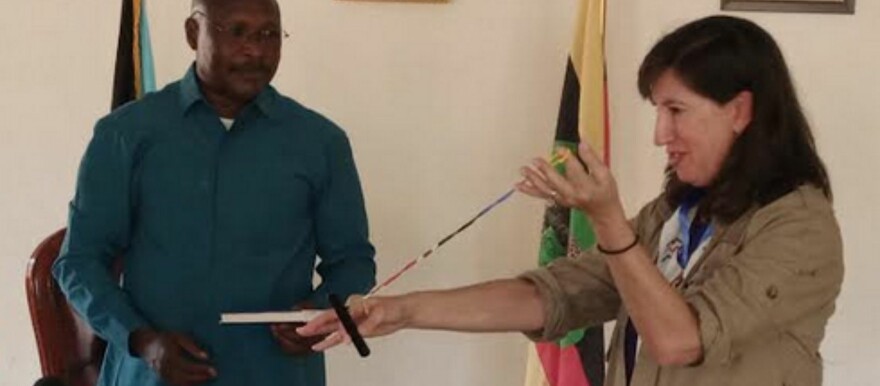The Carter Center has said South Sudan has recorded at least 5 new guinea worm cases out of the 13 reported worldwide.
This news was broken by Carter Center Chief Executive Officer Paige Alexander during a meeting between the National Health Minister Yolanda Wel and Eastern Equatoria State officials in Torit on Wednesday.
The Carter Center team, accompanied by health ministry officials led by Minster Wel visited Lafon County and Torit Town in Eastern Equatoria State to among things track guinea worm infections and trachoma surveillance.
According to Alexander, South Sudan was declared guinea worn-free in 2018 but cases were reported in 2019 and 2022.
“South Sudan had no cases of guinea worm in 2018 and in 2019 we discovered a case and again in 2022. So the numbers here in South Sudan are five,” she said. “Overall in the world, we are down to 13 human cases and so South Sudan is a place that we are very anxious to make sure that we have fully addressed with surveillance and through all the work that we do.”
Out of five cases across the country, Eastern Equatoria has two cases and Lakes State three.
Alexander said Carter Center’s program is integrated and deals with trachoma and the eventual eradication of guinea worm.
“So, our continued work means we have to work together, continue to work with community health workers and we are reliant on all our programs being local,” she said. “We are pleased to be here and I am very pleased to see the work that we are about to do in the field in Lafon.”
On her part, the acting health minister in Eastern Equatoria State, Margret Idwa Okuye, outline the need to establish a facility staffed with specialists to deal with trachoma and guinea worm in the state.
“Our state is very vast and if you go to the Far East in Kapoeta, trachoma is at its peak. I am requesting that a facility be established to curb these cases,” she said. “We also do not have specialists. The third concern is training locals to fight guinea worm disease and trachoma.”
Meanwhile, Eastern Equatoria State Governor Louis Lobong hailed the efforts of Carter Center in reaching far-flung areas to reduce the spread of guinea worm disease.
“You have eradicated the guinea worm and done a lot all over the country but when you people were pulling away, you left a big vacuum. The people you had trained to monitor cannot reach faraway places,” he said. “It was only big trucks that can move in the bush that can reach certain places. I have written to Carter Center to give us some of those trucks they were using to reach those areas but there has been no feedback.”
National Health Minister Yolanda Wel Deng acknowledged the crises faced by the health sector in the country following the closure of the Health Pooled Fund.
“It is one of the hardest lessons we need to learn as a government. We do not have a lot of resources but the little we have should be well planned. Our partners come in to fill the gaps and we should find our way as government to maneuver,” Wel said. “The issue of lack of sustainability and localization is the reason that left gaps and led to programs collapsing when Carter Center left.”
“My approach and vision for the health sector as a whole, including the private sector, is to build around localization where the citizens of an area take care of their affairs,” she added.




